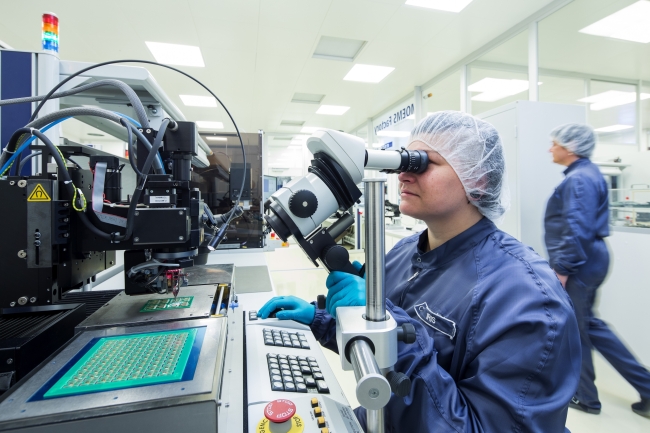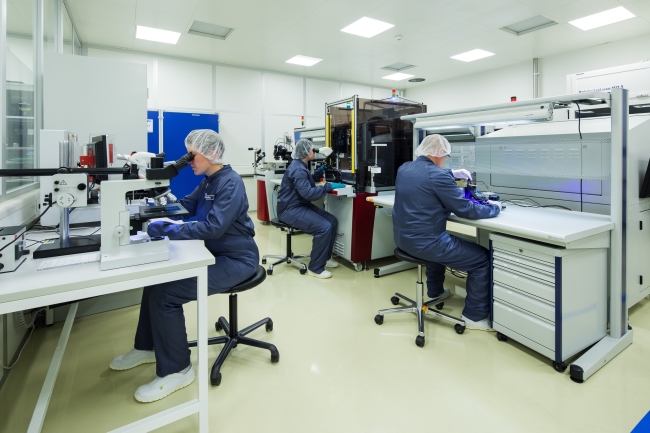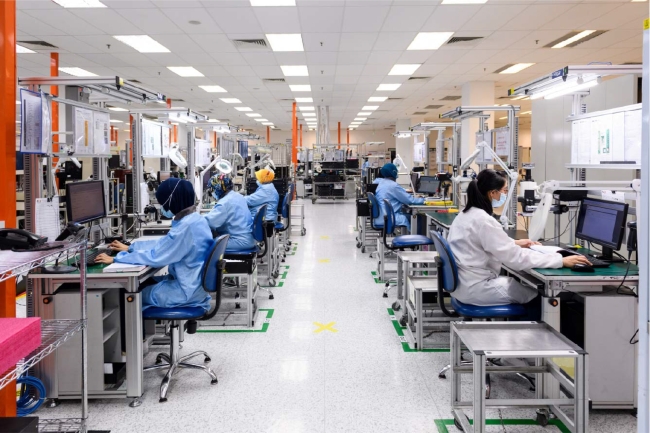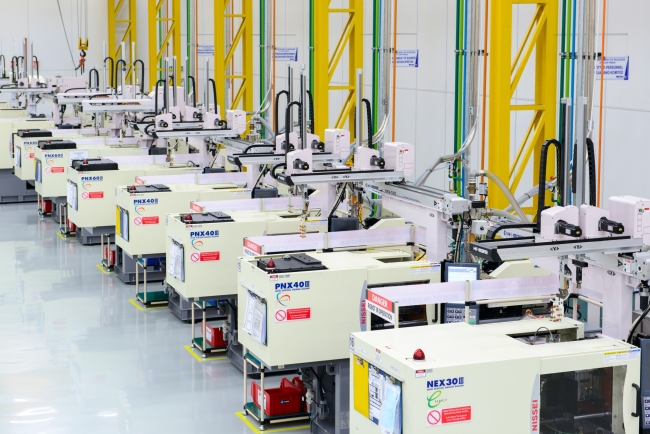5 minute read • published in partnership with ESCATEC
Case Study: How ESCATEC rapidly scaled production to support cold chain logistics customer
When Pfizer/BioNTech announced the release of their life-saving Covid-19 vaccine in 2021, the race was on to ensure continuity and quality of supply. This story explains how ESCATEC helped Controlant (Pfizer’s supply chain visibility partner) ramp up the manufacture of the electronic components vital to their supply chain monitoring IoT.
In Autumn 2020 the Covid-19 pandemic was at its peak. With a highly transmittable virus, a global case to mortality rate running at 3% and no available vaccine, the world was in a fresh round of lock-downs.
Then, in November 2020, there was a breakthrough. A tested and reliable vaccine was finally within reach. By December approval of the Pfizer/BioNTech vaccine had been fast-tracked by UK regulators. Pfizer was ready to ship doses.

Picture: ESCATEC
Pfizer vaccine posed a cold chain logistics challenge
But there was a major logistical issue that was threatening a smooth rollout.
The vaccine needed to be stored between minus 112F and minus 94F to retain its efficacy. For reference, that’s about 20 degrees colder than conditions at the South Pole. Not only that, but it had a shelf life of five days after being transferred from ultracold storage to a refrigerator, leaving a short window to administer.
Cold chains were under pressure
The race was on to ensure continuity and quality of supply. Global cold chain supply lines had to be radically optimised to eliminate bottlenecks and waste. Pfizer now had to oversee the safe delivery of hundreds of millions of shots at the required temperature and prove to regulators they were doing so.
To start with, the company created specially designed deep-freeze “suitcases” that could be tightly sealed and shipped even in non-refrigerated trucks.
Controlant partner with Pfizer
Meanwhile, the Icelandic company Controlant was selected to deliver the IoT technology that could ensure proactive quality management during transit and storage. Tanya Alcorn of Pfizer announced the partnership in December 2020, saying: “We selected Controlant’s innovative technology and platform to track and monitor the Pfizer-BioNTech Covid-19 vaccines during shipment… Controlant’s reusable, real-time data loggers and visibility and analysis platform integrates Pfizer’s existing control tower technologies to help manage temperature proactively, identify and react to any events that can impact the supply chain, all while automating quality and logistics processes.”

Picture: ESCATEC
Pfizer set to deliver 1.8 billion doses in the EU
Orders quickly mounted, with a deal struck to deliver 1.8 billion doses across the EU by 2023.
With governments around the world desperate to bring their populations out of lockdown, protect the vulnerable and reanimate their economies – the pressure was on to accelerate the pace of distribution.
Controlant look to scale data logger production
Controlant needed to build more tracking devices to meet unprecedented global demand.
But this would be no easy task.
As delivery challenges evolved, both Pfizer and Controlant needed to look at their cold chain tracking solutions to:
• Improve quality
• Optimise performance
• Increase efficiencies
• Reduce costs
Controlant partner with ESCATEC to rapidly scale production
In early 2021 the company partnered with ESCATEC to scale the manufacture and supply of two vital components for the IoT data loggers used to monitor temperature. Right from the start ESCATEC was looking to proactively support on quality.

Picture: ESCATEC
ESCATEC undertake DfM process in two weeks
The NPI team at ESCATEC applied DFM (Design for Manufacturing), to isolate multiple product enhancements and improve he effectiveness of the data loggers. Modifications were shared with the client and designs readied for the next stage. The entire turnaround time from receiving the initial designs to making the recommended changes took less than two weeks.
ESCATEC levered expertise to overcome pandemic challenges
In the teeth of a pandemic that had disrupted global supply chains and decimated the available workforce, ESCATEC were able to lever decades of expertise to fulfil production requirements in record time:
• Purchasing new machinery
• Setting-up additional lines
• Preparing multiple new workstations
• Preparing jigs and fixtures
• Identifying, implementing and validating process
• Full testing
• Overseeing quality improvements
• Ensuring regulatory and quality standards are met
Teams pull together as pandemic pressures grow
ESCATECs training department initiated an intensive training programme for the newly recruited staff and the supervisory team assigned to the project.
But the start of mass production was still hugely challenging. Further modifications of the designs were required, some processes had to be revamped while machinery and equipment had to be further calibrated.
With recruitment curtailed during the government’s Movement Control Order, the production operators needed more time to hone their skills on these new products. As volumes started increasing, even office staff were drafted in on a roster to help on the assembly lines.

Picture: ESCATEC
Robotics drive value in IoT device production
Throughout 2021 ESCATEC introduced cutting-edge machinery to automate the soldering, gluing, and screwing processes for the product.
• The Inertec soldering machine reduced cycle time by 1.44 minutes per board, requiring half the number of operators compared to manual soldering.
• The labor-intensive gluing process is now robotic, reducing total cycle time by 1.2 minutes per board, while needing 22 fewer production operators.
• The auto screwing capability has also reduced cycle time by 0.85 minutes per board, replacing the previous manual screwing process that required ten operators per shift.
At the height of demand, the facility was producing 170,000 units per month for Controlant, whose Cold Chain As Service tech supported the delivery of billions of vaccines across the world with a reported 99.99% success rate.
A vital component in an extraordinary story
As the pandemic ravaged supply chains and restricted access to skilled labour, ESCATEC was able to automate production and further value engineer complex designs to meet changing demand and maximise performance. Together with Controlant, it supported the rapid scaling of component manufacture which facilitated the largest and fastest global vaccination programme in human history.
